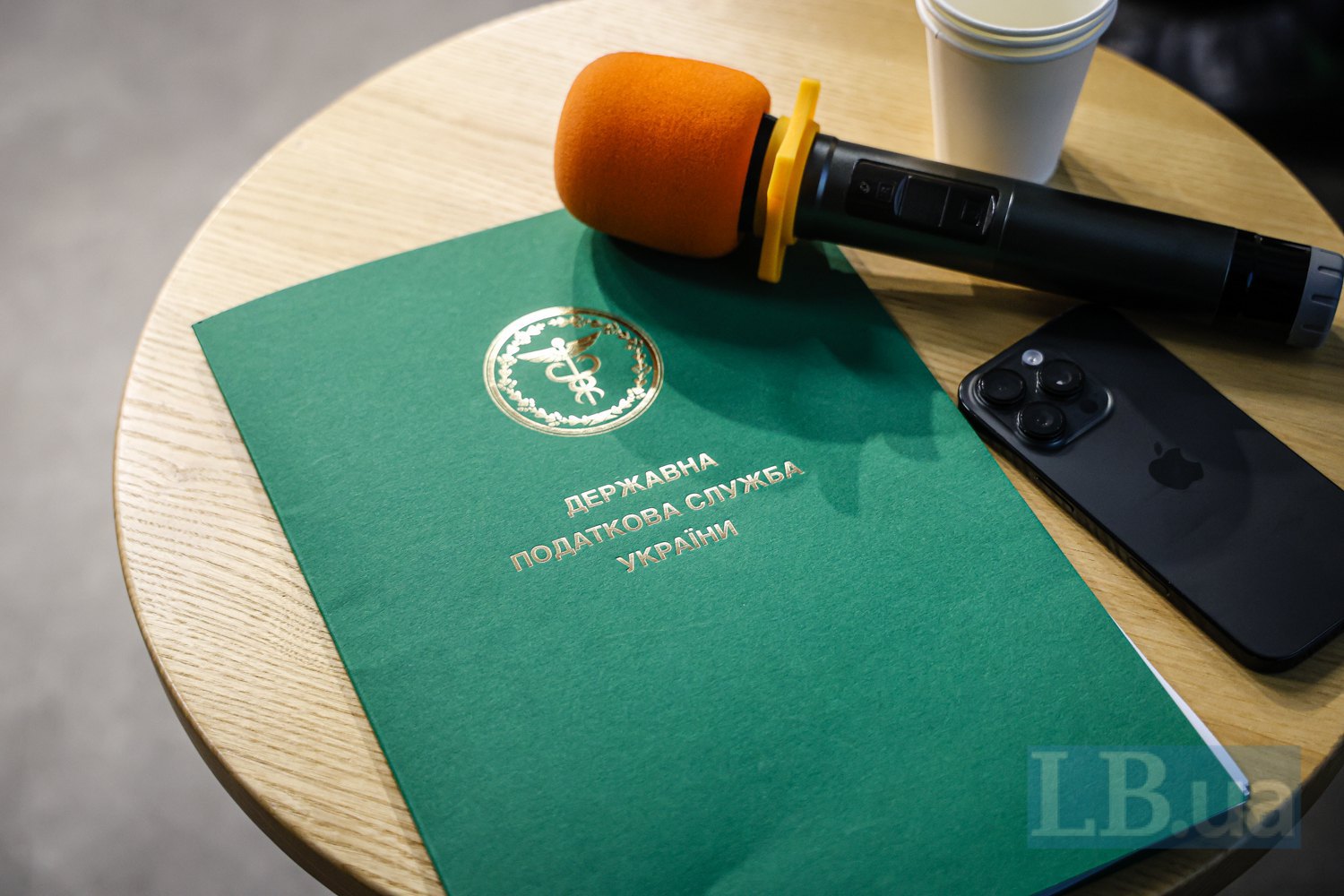‘In four months, we have removed almost 12,000 enterprises from the list of risky ones, but almost 17,000 remain there’
Sonya Koshkina: You mention restoring business confidence in the tax service as one of your main tasks. According to a study by the Business Ombudsman Council conducted at the end of last year, the level of business confidence in the Tax Service is currently estimated at 13% (regional) and 19% (central). What concrete steps are you planning to take to regain this trust?
Ruslan Kravchenko: When I came to work in the tax service, I immediately became an enemy for business. I told my employees that we were the enemy — and we had to change this. When I analysed why there was no trust, I realised that it was because there was no communication with business.
A simple example. If a company has been classified as a risky company or its tax invoices have been blocked, what does the tax office say when a business requests an explanation? “They have blocked you — go sort it out yourself.” In total, 27,000 companies were classified as risky. What did we start doing? Roadmaps. What are they? If we believe that a company has not paid taxes in full, has not submitted any documents, or does not have confirmation of its position, we write this in the roadmap and offer the business the opportunity to comply: pay, submit documents, etc. In four months, 12,000 companies have been removed from this list. I believe this is the result, and I am satisfied with it.
But there is still a lot of work to be done. Almost 17,000 companies remain among the risky ones. This list includes companies that have had business transactions of up to a thousand hryvnyas over three years — or other violations that caused the blocking. Enterprises that evade taxes or decide to organise fraud. These roadmaps are an effective mechanism that we use.
Regarding the blocking of tax invoices. The tax service finished the year 2024 at 0.76%. Everyone will say that this is a good indicator, a good figure — but it has an ugly side: 15% of business entities (i.e. every sixth or seventh entrepreneur) had their tax invoices blocked.

We started to look into it. The system of automatic blocking is imperfect. It does not see the cause-and-effect relationship. If, for example, a bread producer receives tax invoices for flour, eggs, water and other products, and the finished product is bread, the system does not see this — it simply blocks it.
I made an administrative decision that we accept all data tables from producers of goods and service providers. Also, the tax office no longer asks when you were born, when you had the idea to start a business, when your cat was born, etc. — only what is relevant to a particular situation. We have set up additional counselling centres in the Regions for people to come to. They are given explanations, and they understand what the problem is.
A large number of blockages also came from frequent changes in legislation. According to the World Bank, 52% of respondents are dissatisfied with the frequent changes in legislation. The accountant does not have time to study the signs — what they were yesterday, what they are today, what data has appeared — and the system blocks them.
I have done everything that could be done administratively. What are the results? As of today, 0.37% of tax invoices are blocked. This figure varies at the beginning of the month, in the middle, and at the end — we reach 5 to 9% of business entities. That is, we have halved the number of business entities whose tax invoices are blocked. But this is not the end.
My team and I have worked out amendments to the resolution that regulates the work of the SMKOR. They are aimed at increasing the unconditional registration for a tax invoice — not to UAH 5,000, as it is now, but to UAH 10,000 — and the monthly limit — not UAH 500,000 but UAH 3 million. A large team worked on this, we checked and provided data on the risks of abuse of these changes. The Ministry of Finance has worked with us and supported us, and I hope that the Cabinet of Ministers will support these changes, because I am sure they will halve the blocking itself. That is, we can reach 0.2% — and it will be an automatic system.
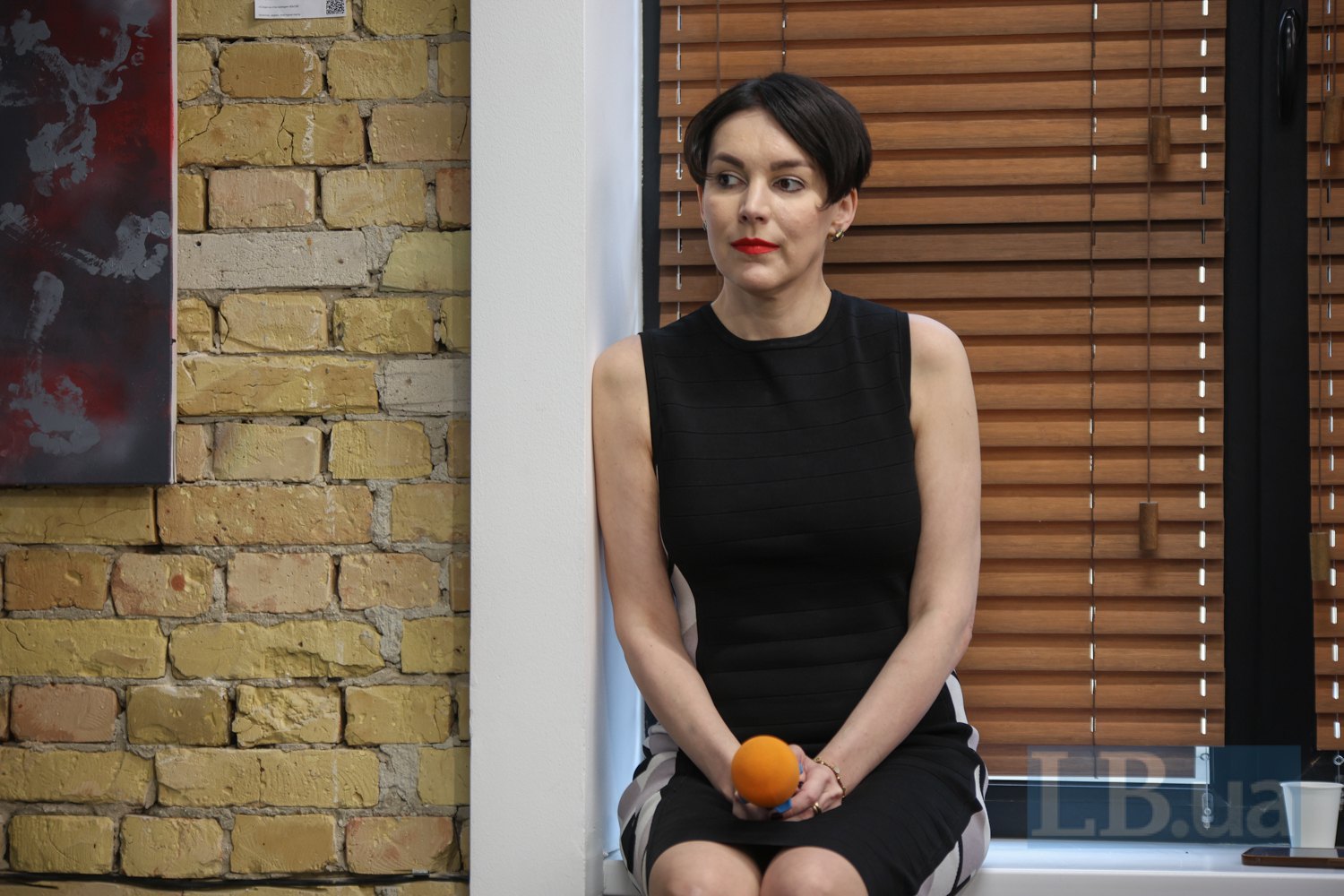
Sonya Koshkina: When should the Cabinet of Ministers consider this?
I don’t know.
There is a bureaucratic machine — it works. It could be done faster. But we offered everything that depended on us — we took the initiative.
We worked around the clock with the departments to consider certain issues to make it easier for business. I travel around the regions. I came to Dnipro and was told that they hadn’t seen the head of the tax office for five years. I met with associations: honey producers, walnut growers — they had never had such communication at all.
Sonya Koshkina: For more than three years, the tax office did not have a full-fledged head — it was actually run by Danylo Hetmantsev.
You know, when I travelled to the regions, some of them were active. And some heads of regional offices were doing nonsense — inviting businesses that were compliant. Lesya Karnaukh, my deputy, identified such situations and invited other businesses [which were critical].
In general, business has many problems. We either solved them immediately or took a break, looked into them and resolved them. But I realised that a simple dialogue and explanation is often not enough: “You underpaid a little bit, we have such a job, I’m sorry, you have to pay extra. Or re-submit your documents.” The heads of regional departments understood that they could resolve a particular issue in 15 minutes.
There were regions where there were no such issues. There were businesses that were just pleased to be visited and listened to. For example, the situation in Khmelnytskyy is good — only 0.2% of blocked tax invoices there.
…But there is a very important problem. I’ll take this opportunity to talk about it. Military personnel or veterans who have returned and were individual entrepreneurs failed to file their accounts within 10 days, and they were charged with penalties. This can be changed — it is not a problem to change these 10 days to 180.

…I try to convey to my employees that it is our job to collect taxes and solve the problems of taxpayers. And openness, transparency, humanity — as far as possible — choosing the golden mean will be the result of this trust in the future.
But we need to understand that we have a history where we all want to earn more and pay less taxes. We need to respect every taxpayer, business and tax officer.
My main goal is to fulfil the plan, and my bigger goal is to overfulfil it while improving the comfort for business. Because now the overperformance means additional funds that the state can spend on priority areas during the war.
Sonya Koshkina: Ruslan, you have repeatedly acknowledged — and are now talking about it — that the tax service was in a crisis situation when you came to office. Who should be responsible for this? If we take investigators who open a criminal case without any grounds, they must be held accountable for it under the law. This is not the case with the tax authorities. For three and a half years, there was a mess there. You came in and put things in order — it’s great. But someone has to be responsible for the mess. And it’s not a global change of government, so you can’t blame it on your predecessors.
There are law enforcement agencies that have the function of pre-trial investigation. A tax officer bears criminal, administrative and civil liability. If a business believes that it has suffered damage as a result of the actions or inaction of a tax officer, it either goes to civil proceedings or, if it believes that a criminal offence has been committed, files a criminal complaint.
Sonya Koshkina: Are there any such appeals?
No, not to the court. They go to court only to cancel the decisions of the tax authorities.
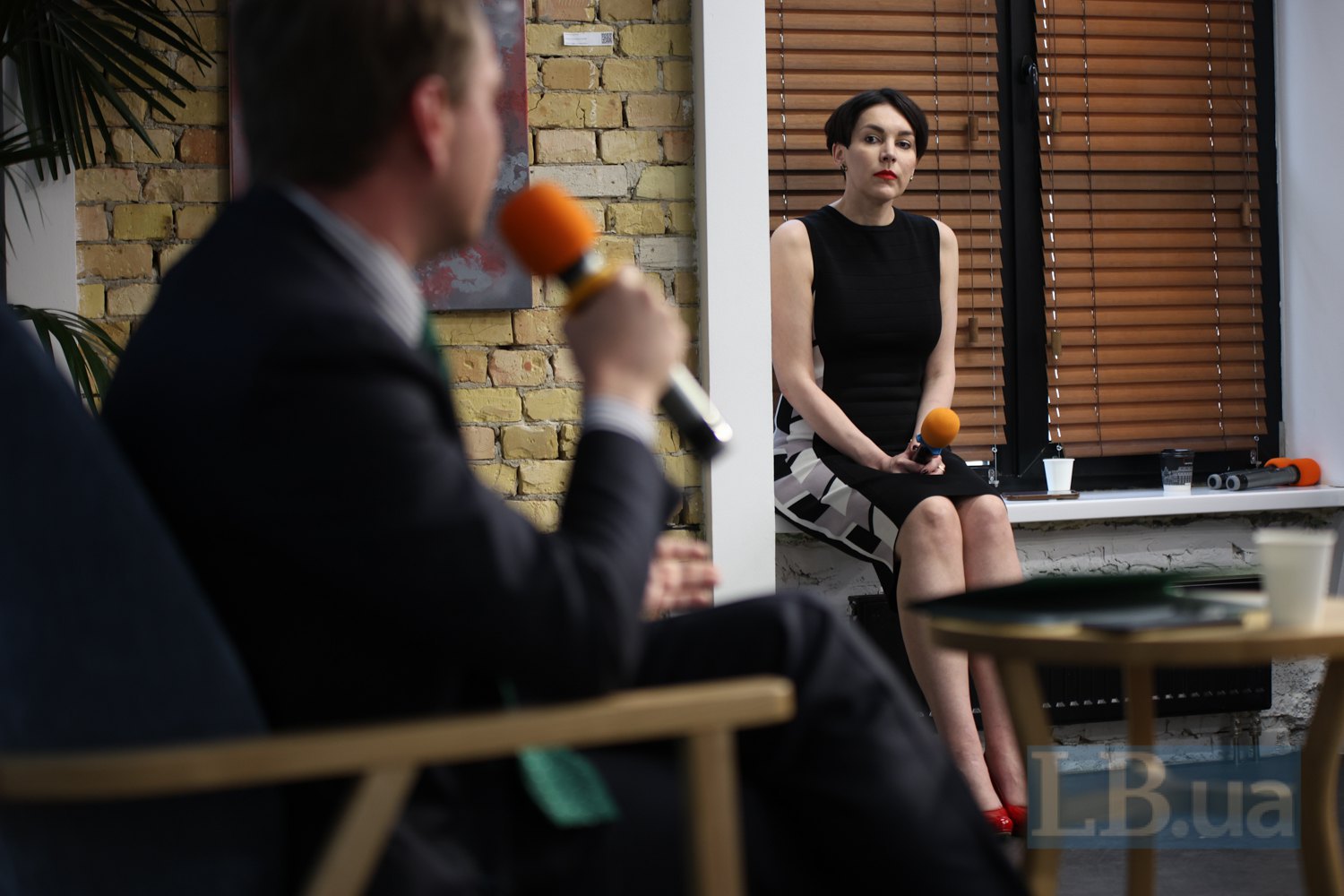
Sonya Koshkina: I see. There is no need to talk about political responsibility.
Now you report on the growth of tax revenues since the beginning of your work. How did you manage to achieve such results: improved administration or, perhaps, the reason is that at the beginning of the year, payments to state employees and the military were increased?
As of today, we have overperformed by UAH 44 billion in four months of work (as of 30.04.2025 — UAH 46.2 billion — Ed.).
I’m not afraid of this word — this has never happened in the history of the tax service. First of all, it’s the desire and normalisation of the internal environment in the tax office. And conveying to employees that the impossible is possible.
When I gathered them for the first time, I said: I know you are experts in your field. You have been implementing the plan as best you can, but something in my heart tells me that you know how to exceed it. Various information was circulating that inspections were carried out, amounts were set, 70% of it was lost, and only 15% went to the budget. Now, I believe that every employee has the same goal as me, and we have the ideology of “everything to the budget”.
To be honest, the director of the economic analysis department did not believe that we could achieve the overperformance. But the first month showed almost 10 billion — 9.8. The next month — 14 billion plus. Most of the tax employees have bright eyes, they are high on these results. I personally get high from this result.
I am now explaining where we get this money.
We have changed our internal security, we cooperate with all law enforcement agencies, we communicate with business. As part of our international obligations with the IMF and European integration processes, we are currently preparing for the European Commission’s screening and working to increase the level of voluntary tax payments. The transfer pricing department is working. Recently, the court ordered a well-known company, whose beneficiary is a well-known person, to pay UAH 3.7 billion to the budget. The principal judge of the Supreme Court upheld the tax authority’s position.
There are many cases that will help us bring in additional funds that have not been paid for the previous period for international transactions and international contracts. In other words, we have changed our approach. New laws on excise duty and other areas have also increased revenues.
For example, the tax on Google in January was one billion hryvnyas more than usual. Businesses are now paying taxes even faster than the required timeframe. And we are doing this overperformance not in the way the tax authorities are used to — pay in advance; we do not take advances. In December, we received some advances, but since January, we have not taken any.
Excise tax revenues are 31% higher than the figures set by the Ministry of Finance and have increased by more than 60% year-on-year.

“The State Tax Service supports global changes in the taxation system”
Sonya Koshkina: You have briefly touched upon the topic of appeal mechanisms. If you are on a risky list, you can write a complaint and appeal to the highest authority in the tax structure. There is a special commission there, and if you can’t settle the matter with it, you have to go to court. Do you have an understanding of how many complaints are dismissed in the course of their consideration within the tax authorities and how many go to court?
This is also a question of trust. Business did not trust the tax authorities. They did not want to file complaints with regional offices or the central office. For example, a tax invoice is blocked — why file a complaint, let’s go to court…
Sonya Koshkina: Or file a complaint to find out what other arguments the tax office has that it can use in court to finish off this business.
We went to Zhytomyr for the first meeting. There, I realised that we also have a mess with the enforcement of court decisions, appeals, etc. I urged businesses to apply. My approach is to settle all disputes out of court.
Sonya Koshkina: All of them?
As many as possible.
Sonya Koshkina: Under Groysman’s premiership, not to lie, the tax authorities managed to settle about 36% of disputes out of court.

For blocked tax invoices, the rate of unblocking without a court is 70–80%. In other areas, we need to improve the statistics, and we are now changing it as much as possible to prevent people from going to court.
In criminal proceedings, there is a reconciliation agreement or a plea agreement where the prosecutor can make a preliminary decision and agree on a punishment less than the one provided for by law. Then, with this agreement, the accused and the prosecutor go to court, and the judge either approves the agreement or not.
For example, an audit was conducted and it was found that the company had not paid UAH 400 million. The company comes to the meeting and says: we can’t pay everything, we can pay UAH 300 or 350 million now, please agree; if you don’t agree, we go to court. If I or the tax officers have such legal grounds, we can enter into a preliminary agreement, agree to these fines or to defer the balance for a longer period of time, and then go to a judge, for example. In this way, we will reduce the percentage of court proceedings, decisions, and cassations by one hundred per cent. And we will immediately receive budget revenues.
But we don’t have this right now.
Sonya Koshkina: Such a rule will not pass the Verkhovna Rada, especially with the current head of the Tax Committee. You can only talk about it publicly and make noise about it, then maybe something will happen.
I believe that everything is possible. And I’m not the only one. There is a business that may support my position. Let’s make noise together.
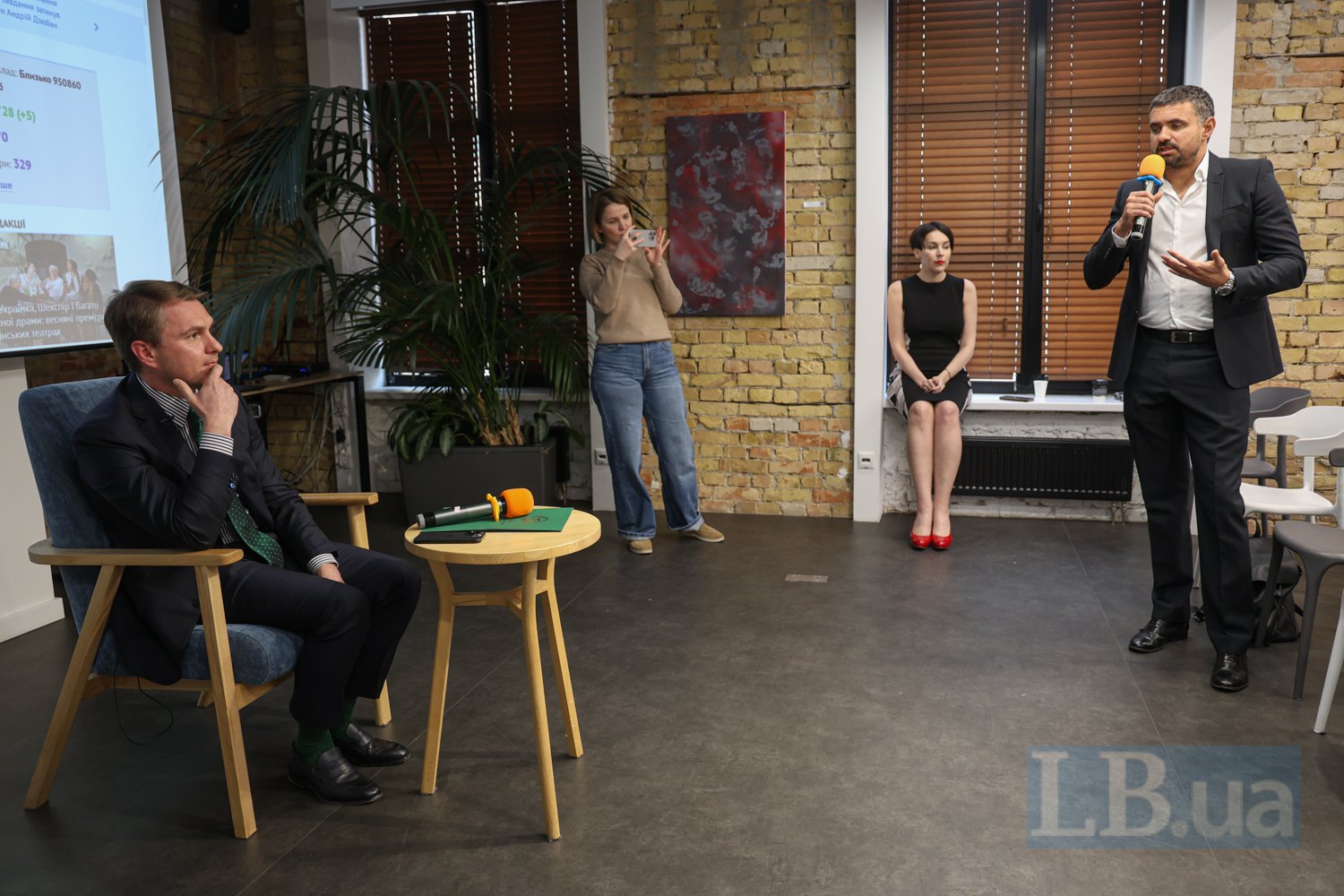
Ihor Liski, businessman, Chairman of the Board of EFI Group: Most truly patriotic businesses understand that without taxes, there is no state and no defence of Ukraine. Some of my colleagues accuse me of advocating for higher taxes, but I personally believe that under the current circumstances, we cannot maintain the largest army in Europe on low taxes alone.
But the issue is not even about the tax rates. I would be willing to pay more, but the real problem lies in the lack of a level playing field. Some businesses somehow manage to avoid paying – whether through influence, protection, or operating in the shadows with impunity. What businesses truly want is a transparent system with clear, fair rules that apply to everyone. That’s when real competition begins to work, and businesses actually assist regulators – because everyone understands the market and knows who pays, who operates in the grey zone, and who cheats. What matters most is trust and transparency from the tax authorities.
I understand you’re not a legislator and don’t determine fiscal policy, but do you have a vision for what the tax system should look like? Have you shared any ideas with the Minister of Finance or Parliament?
I won’t take the legislators’ bread. That’s their job. But I will share my personal view.
Recently, the President said that after victory and peace, there will be a complete overhaul of the tax system – and I support that. The State Tax Service stands behind large-scale changes to the taxation system.
We must study global models – the European one, or the system in the UAE, for example, where businesses pay tax at 0.9% or 15% depending on income, and once it’s paid, that’s the end of it.
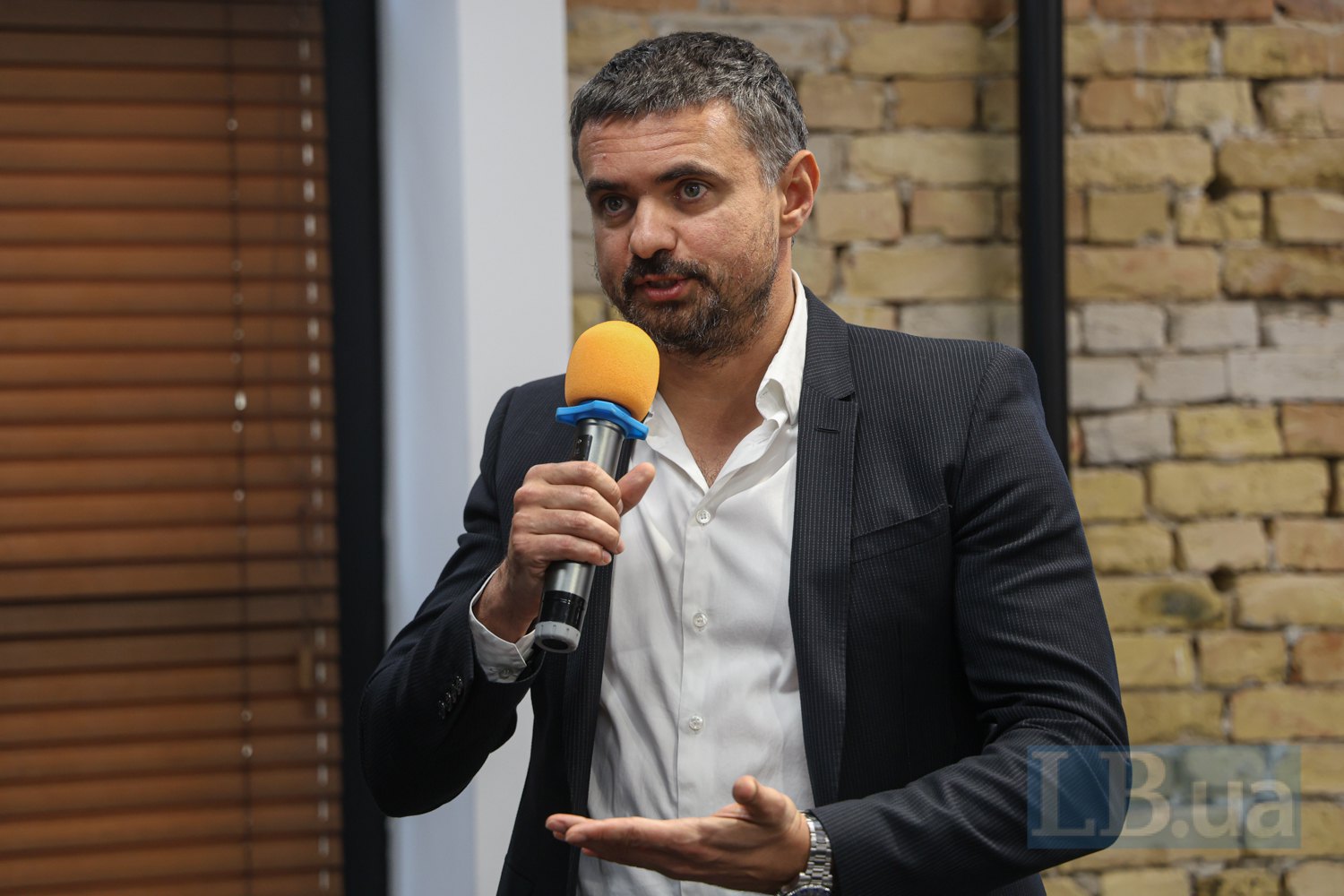
We need to analyse and choose the model that best fits Ukraine – our traditions and the country’s needs. Then lawmakers can draft legislation to guide us into the future.
Today, I believe that, together with the Ministry of Finance and Parliament, we must maintain stability during wartime and navigate the peace transition within the current system, while improving as much as we can. That means building trust and dismantling schemes that enable tax avoidance.
We need a synergy between all government and law enforcement bodies. For example, if the tax authorities shut down a company evading taxes and the State Financial Monitoring Service of Ukraine (SFMS) helps us block their accounts, the scheme will just move to new companies with new accounts unless we act in unison.
Speaking as a former prosecutor – if the tax service had the power to conduct pre-trial investigations with law enforcement, we could search premises, seize evidence, and freeze assets the very next day. This would immediately shut down the illegal platforms enabling tax evasion. But for this, we need fair and transparent taxation.
In my view, fairness is essential. Large businesses should pay fair, clear percentages. Medium-sized businesses, too. Small businesses – also fair rates. Why does this work abroad but not here? When companies understand they must pay 20–22%, they’ll report their income properly. There’ll be no need to go looking for platforms to help them avoid paying 40%.
That’s my perspective – please take it as such. I might be wrong.
On individual entrepreneurs, over-fulfilment of the revenue plan and taxes that will (not) cover the reduction of assistance from partners
Hlib Vyshlinskyy, Centre for Economic Strategy: Moving away from proposed legislative changes for individual entrepreneurs, there are broader concerns about the Tax Service’s operations. Take petrol stations, for example – they’re under tax control, but their food services are often operated by individual entrepreneurs, just like many other sectors.
There are also retail companies under investigation that continue to operate, despite clear legislation on mandatory cash registers. How do you plan to create a more equitable market? McDonald’s pays all its taxes, as do Ukrzaliznytsya and Ukrposhta. Ukrposhta just filed its annual report – 12% profitability, the highest revenue, and it’s doing fine. So there are questions about the practical enforcement by the State Tax Service in sectors with ongoing abuses.

The second question concerns the appeal process. Often, companies appeal not because they believe they’ll win, but because if they don’t, they risk being charged with causing financial damage to the state. Based on your law enforcement experience, how can this be addressed?
Regarding individual entrepreneurs: again, I’m not a legislator. I implement the law. If the law allows someone to register as a sole proprietor and operate as an LLC while using three sole proprietors – then the law allows it. So what’s the question for the tax service? We carry out inspections and monitor both individual entrepreneurs and legal entities.
As for cash registers used by those selling electronic goods – two well-known platforms accused the tax authorities of being obstructive. I told them: let’s create a roadmap. Let’s agree what you need to do to operate legally. Now we’re monitoring them 24/7: observing each cashier, checking whether receipts are issued, how they are issued, and whether the sale is in cash or cryptocurrency. In short – we’re controlling the process.
We made it clear: they must pay all taxes according to the law, sell goods legally, and issue proper receipts – not just wave a slip of paper and call it a receipt. Once they complied, we unblocked them. No more checks.
You know what they asked? “Give us two weeks to sell what we already have.” “Smuggling?” “Yes, smuggling.” “No,” I said. And that was that. I treat every electronic goods platform the same. No exceptions.
As for appeals – if you don’t know what to do, look at the law. If the company has committed no violation, then the report should state there are no violations. But if there are violations and you say there are none – that’s a crime.
Sonya Koshkina: Which area or industry currently pays the most taxes? Is it gambling – or something else?
These are manufacturers, service providers, and trade.
Olesya Ostafyeva, restaurateur: You gave an example of a restaurant…
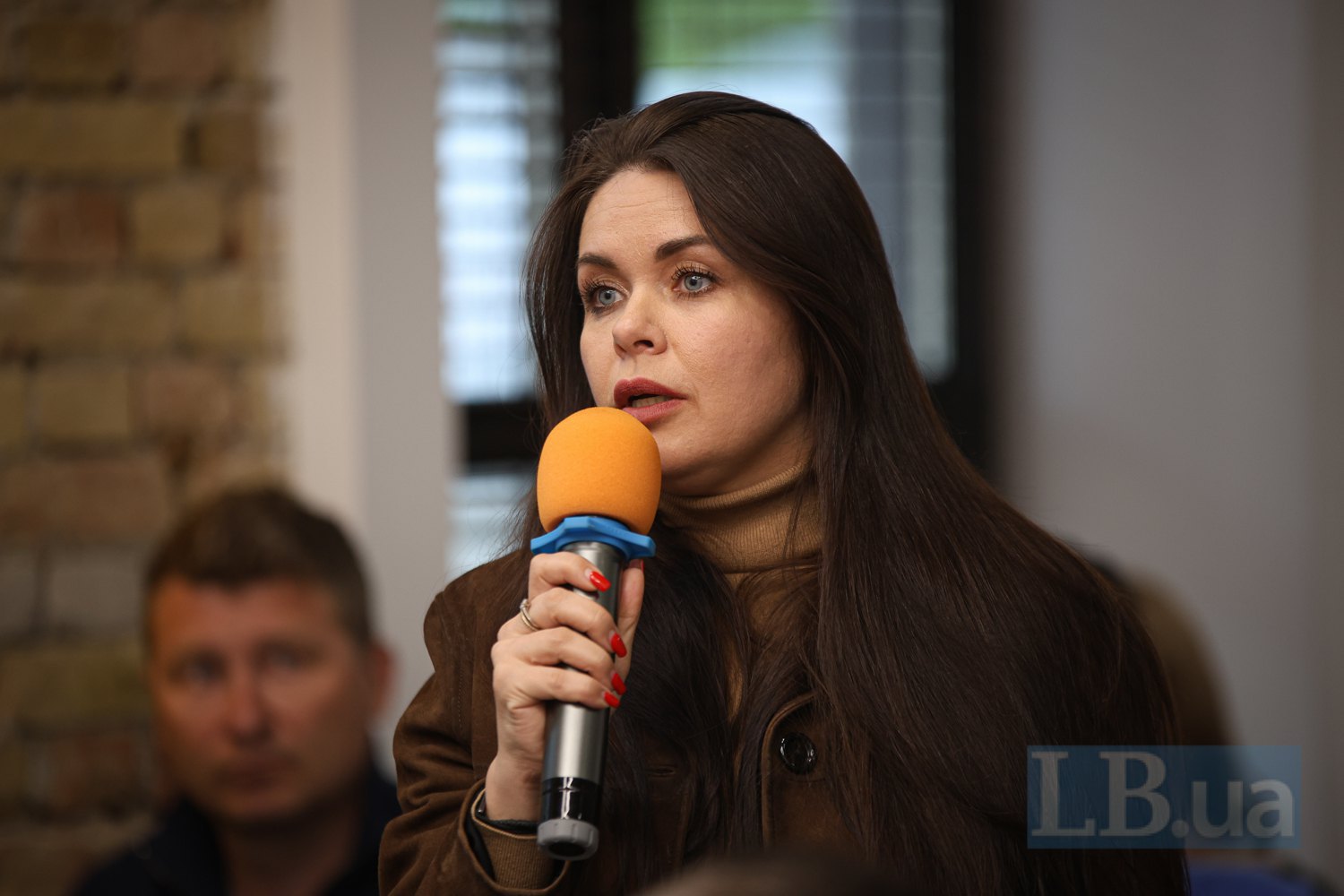
How many terminals do you have?
Olesya Ostafyeva, restaurateur: I have two sole proprietorships: one for alcohol and one for the kitchen. Why do I have a separate sole proprietorship for the kitchen? Because, for example, if my kitchen sells sausage slices today, and I bought the meat a month ago, I write off 50 grams of sausage today. And this is the work of an accountant, who requires a salary of 25–30 thousand hryvnyas per month. When I am an individual entrepreneur, I write off the total, I pay not from my profits, but from the total amount – and it is easier for me. When there are 10 individual entrepreneurs per restaurant per year, I think it is possible to calculate and understand this situation.
But when the simplified taxation system was introduced, there was a huge surge in the number of sole proprietorships at the end of, I think, ’99. And it wasn’t a story of people going out to start their own businesses and become entrepreneurs. People simply came out of the shadows – because it was easier to pay those 200 hryvnyas, which at that time were not small money, but to sleep peacefully.
I have a question. In the National Revenue Strategy until 2030, there is a position on the elimination of the simplified tax system altogether. Will it be worth the trouble – or will there be a scenario where small entrepreneurs go back into the shadows?
The question concerns legislative changes. I support the position on future changes. We need to find a balance – so that the country’s budget does not lose money and support business.
At every meeting with business or business associations (today I met with residents of Diia.City, which also has many legislative initiatives), I told them – and I am telling you – that I do not know how long I will be in office…
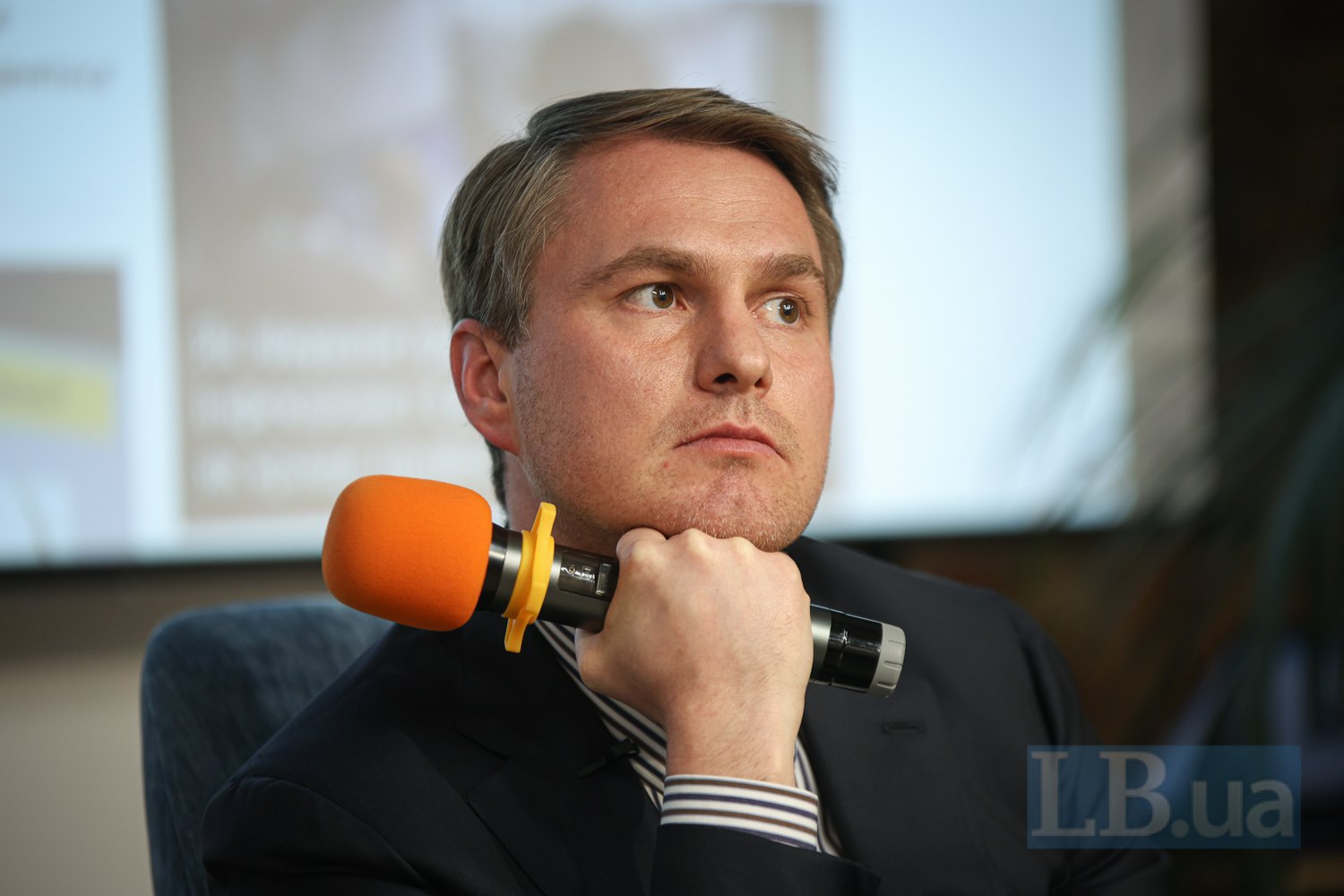
Sonya Koshkina: Until you are appointed Prosecutor General. If you are appointed at all, of course.
No comment.
…When I was the head of the regional administration, someone told me that the chair remains – but people change. But as long as I am in this position, the State Tax Service will support those legislative initiatives aimed at improving the taxation system for business – but also at keeping the state budget in line.
Sonya Koshkina: We know that at the end of each year, a tax audit plan is drawn up. For 2025, it was drawn up without you. Will you be making any changes?
Yes, the tax audit plan is approved at the end of the year. In December, it was approved by the former acting head of the State Tax Service – but, according to the law, changes can be made. At the end of the first quarter, I made changes to the audit plan for the year. I can still change it at the end of the second. There were questions about medicines – the decision of the National Security and Defence Council, the President – we have additionally included drug manufacturers, wholesalers and retailers in this plan to see the whole picture objectively.
Ihor Burakovskyy, Institute for Economic Research and Policy Consulting: The so-called minerals agreement – whatever it means. Please tell me, does the tax system, the tax service, have any calculations of the tax consequences of different options for this agreement?
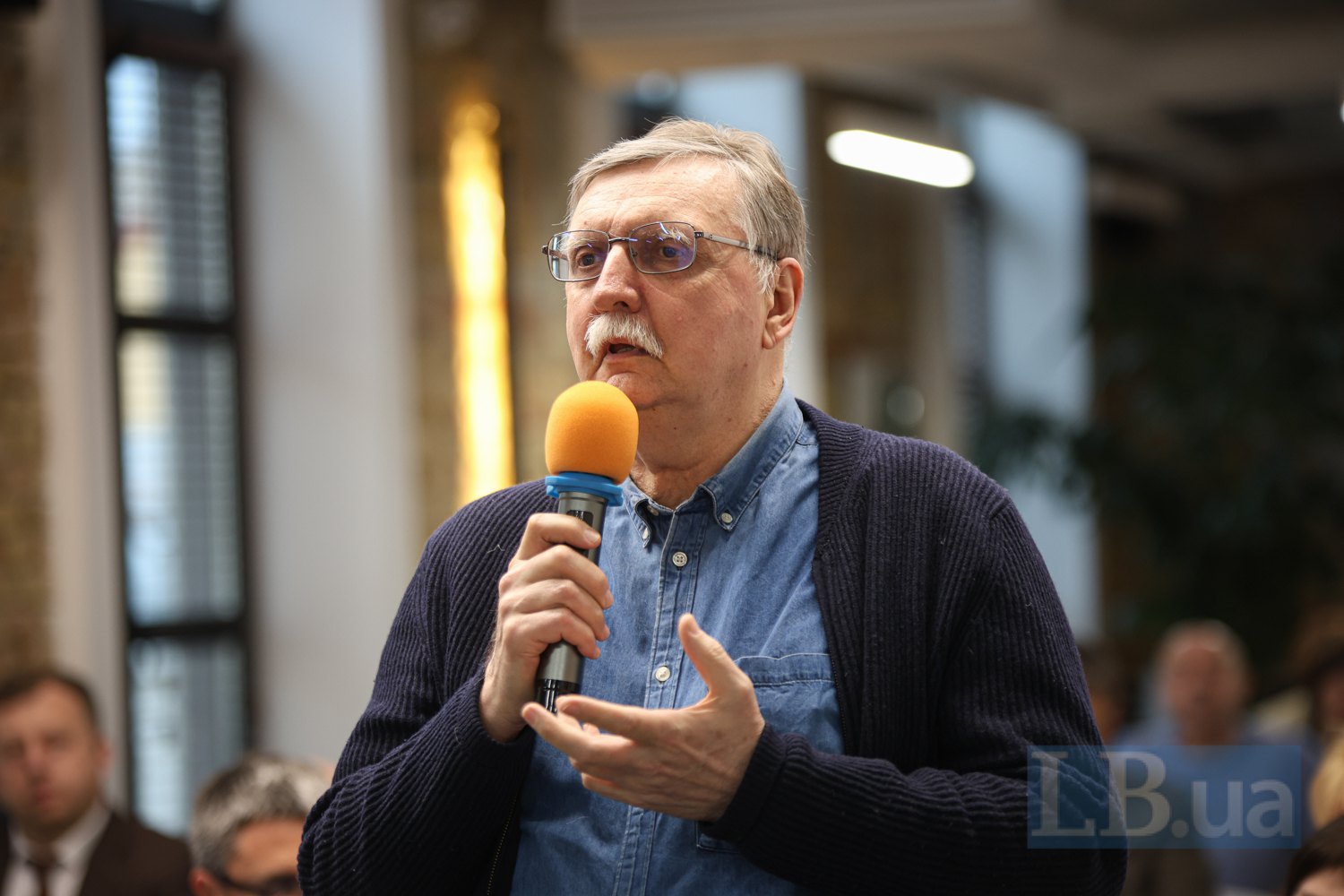
I can’t answer yes or no – I can only answer “whether”, because we were not given the agreement to study and answer this question.
Ihor Burakovskyy, Institute for Economic Research and Policy Consulting: And the second question. There are risks of a reduction in international aid – with all the consequences. You mentioned that there are opportunities to increase tax revenues, which can, so to speak, somehow cover this. Please tell us – do you have any plans for what the tax authorities will do if international aid is greatly reduced?
First of all, it will continue to perform its legitimate functions – collecting taxes. The payment of taxes also depends on the Armed Forces of Ukraine. The Armed Forces of Ukraine give a lot of hope – a great opportunity for businesses to work, earn money, and pay taxes. The Armed Forces – and the country – can live only on taxes paid. Of course, you can get help and so on. But in general, the state budget is formed from taxes paid. They are collected by the tax or customs authorities. All this money comes from taxes paid by entrepreneurs, individual entrepreneurs and others.
We show the result. I have already said that I am satisfied with these results. In four months, we have brought in more than a billion US dollars. Over this period – I don’t know as of today, but at the end of March – when we exceeded our target, we were at USD 36 billion. This is the money that can serve additional needs that arise in the state.
I cannot make strategic decisions on what we will do. There will be a new law, which will be adopted by Nina Petrovna’s colleagues (Yuzhanina, former head of the Verkhovna Rada Committee on Taxation and Customs Policy – Ed.) – and we will implement and work according to the new law.
Nina Yuzhanina, former Head of the Verkhovna Rada Committee on Taxation and Customs Policy: I would like to add two comments. On the overperformance of budget revenues. Every quarter, the Accounting Chamber emphasises that macroeconomic targets are greatly underestimated. Every quarter, budget revenues are overperformed only because actual macro indicators are not taken into account, imports of goods, including volume, consumer prices, average exchange rate to the dollar and the euro, are not taken into account. The same thing is happening in your country.
So just take this into account. In fact, business pays because the revenue side increases as a result of completely different circumstances and figures than you operate with. The 65 billion overperformance is due to such factors.
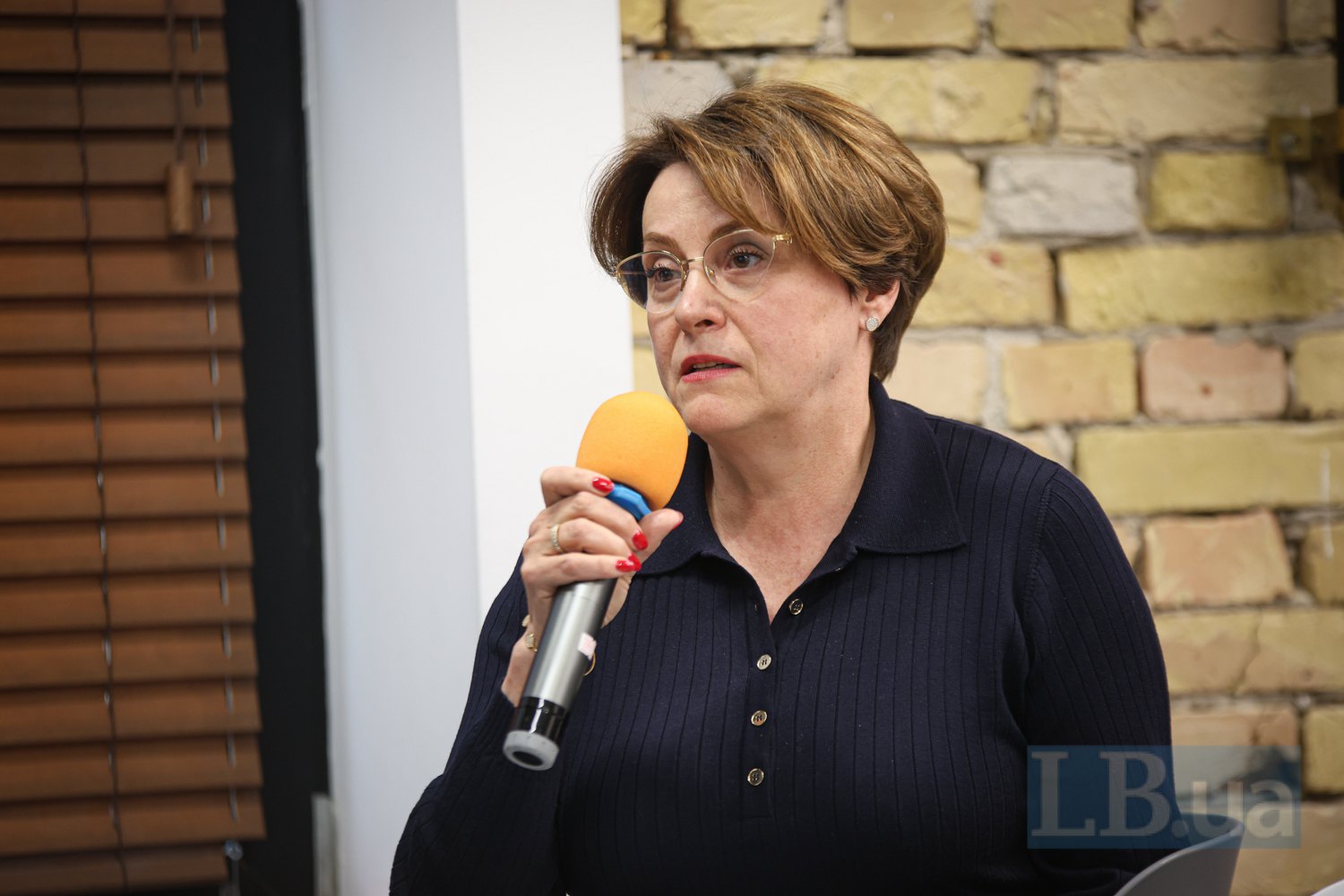
I did not adopt the state budget and did not set the revenue plan. The Ministry of Finance set the revenue plan in accordance with the adopted law on the state budget, which you have adopted.
Nina Yuzhanina: But there are no miracles in the world, there cannot be plus 44 billion.
In ‘23-‘24, there was no overperformance. One per cent of the overperformance was in 2024.
Nina Yuzhanina: 65 billion plus.
This is one per cent, Nina Petrivna, you have the wrong data.
Nina Yuzhanina: What do you mean, wrong data?
The Treasury confirms our overperformance every month. At 19:00, it confirms that the tax office has overfulfilled the target, they tick the box, and I go out with the corresponding publication.

"I am against communities collecting taxes"
Nina Yuzhanina, former head of the Verkhovna Rada Committee on Taxation and Customs Policy: Very well. But I ask you to take it more seriously, to break it down – as a result of what?
Now a question. Have you considered other actual sources of additional revenues? I mean rent payments. This is very important. I support the idea of a deal on fossil fuels (the meeting took place before it was signed – Ed.). But if the United States is encroaching and calculating certain benefits for itself, and we have annual revenues of only up to USD 1.5 billion from all resources, I do not understand what interest they have.
In 2018, we adopted regulations on taxation of gas production. And to increase domestic gas production, we built a preferential system to support the development of new wells – we set very low rates. Over the years, it turned out that all wells have become new. The trend of state support – a half rate – has already played against the state budget. The resource there is more than UAH 10 billion a year. Have you already dealt with this issue? Because despite the fact that you are still a tax administration service, you can also submit legislative initiatives through the Ministry of Finance. Will you look into this situation to bring real additional revenues to the budget?
Do you know what you missed in 2018 for rent payments? An air defence system that will protect those plants and gas companies that produce gas so that our rent does not decrease in Kharkiv and Poltava Regions after the strikes.
Our rents have decreased. I can show you the figures. The Economic Analysis Department recently submitted a report. We have been in the red for four months now in Kharkiv region, Poltava region and Volyn region, but in April it levelled off.
Nina Yuzhanina: Why?
Because we have hits on the plants that produced, extracted and paid rent.
Nina Yuzhanina: I am asking you a completely different question – about the gas royalty rate. It should be doubled.
You are an MP, you hold all the cards.
Roman Vashchuk, Business Ombudsman: I would like to confirm and praise what has been done to enforce court decisions. This is a real progress. We see it in our practice. After that, there is the issue of VAT refunds. Here, too, I think we could find a certain administrative will to move this case forward without any changes to the legislation. We are still working with complaints from 2019–2020. There are many outstanding issues that could be resolved. And I hope that after the court decisions, this can be your next priority.

VAT refunds. There are no problematic issues today. I am pleased with this result because we are over-performing and can increase VAT refunds. In January, we paid all those who applied in December. In April, we paid to those who applied in March.
If a company applies for a VAT refund for the first time, it takes 7-10 days to complete a documentary check. If it is a repeat application and the company has previously received a VAT refund, it takes 3 to 5 days to check.
To date, I have not had any complaints, except for those to whom we have refused. And we have refused the companies that used these funds and want to return them with companies that are under sanctions. But there are no complaints in general. There are old cases where we have refused, and there are already lawsuits. We are waiting for court decisions. When the courts decide, we will comply. And if we understand that we can win, we will go and defend the state budget.
Oleksandr Slobozhan, Executive Director of the Association of Ukrainian Cities: Do you plan to cancel the decision of your predecessors regarding the reduction of tax units in the regions and territorial communities?
Let me explain. We have 1,073 communities in the Association, 90% of the population. While big cities can use a tax office, since last year, all rural and urban areas across the country have not had access to tax services. I'll name the communities to make them sound.

I know this problem. This is the Vasylkivska hromada, the Buchanska hromada.
Oleksandr Slobozhan, Executive Director of the Association of Ukrainian Cities: Some hromadas are even ready to create jobs for tax officers. For example, Novodnistrovska (Chernivtsi Region), Sosnytska (Chernihiv Region), Baltska (Odesa Region), Barska (Vinnytsya Region). You have already mentioned Kyiv Region. Will you resume the work of remote tax offices and these structural units?
When I was the head of the regional administration, I was approached by community leaders, and I supported them. And when I started working at the tax office, the concept changed (laughter in the audience – Ed.). I want to approach this issue objectively. Some people don't need it, and some, as you said, do. I have given instructions to my deputies, and they are working on it and analysing how we can do it. At the moment, I have not made a decision. We are still analysing and deciding how to get out of this situation to find a middle ground.
Oleksandr Kozik, Director of the Department of Local Budget Revenues at Dnipro City Council: We are all united by the fact that we live in territorial communities. Ukraine is undergoing decentralisation, and it’s only logical that this process should include the transfer of local tax administration functions, as these taxes are inherently local and form the basis of local budgets.

Currently, all taxes are administered by the tax service, which you now head. This system predates your tenure, and you are already aware of the shortcomings in the Tax Code. Let me give you one example: we have two property taxes – land tax and tax on immovable property other than a land plot. These two similar taxes are administered in completely different ways. One is based on the normative monetary value, and the other on the minimum wage. From a professional and logical standpoint, that makes no sense. What is immovable property other than a land plot? Perhaps a land plot that’s capitalised. So the tax base and the logic of taxation should be the same.
Our hromada has been raising the issue of transferring tax administration functions since 2017. I spoke to the head of the service in 2019, and the response was quite harsh. Then things began to change. We now have a National Revenue Strategy that includes this reform, with implementation scheduled to begin in 2024. It’s 2025 now, and we still don’t see this happening.
Sonya told me to tell the truth at this meeting, so I will: I am against communities collecting taxes. Let’s not create tax office No. 1, No. 2, No. 3, No. 4. That would be too much for communities to handle.
What communities should do is monitor who owns the land, how it’s used, whether land tax is being paid, and whether that use is legal. In Kyiv Region, I personally pushed communities to provide documentation on unpaid land taxes. As a result, in one year alone, we secured UAH 600 million in additional revenue. This is a local tax – it stays within the community.
So investigate land plots: how they were alienated, leased, and whether they are taxed. That’s all you need to generate extra revenue. Why do you need your own tax office? Just give us the documentation on those who aren’t paying taxes. The tax office will take it from there and draw up the appropriate paperwork. I truly don’t see why a local authority would need its own tax administration.
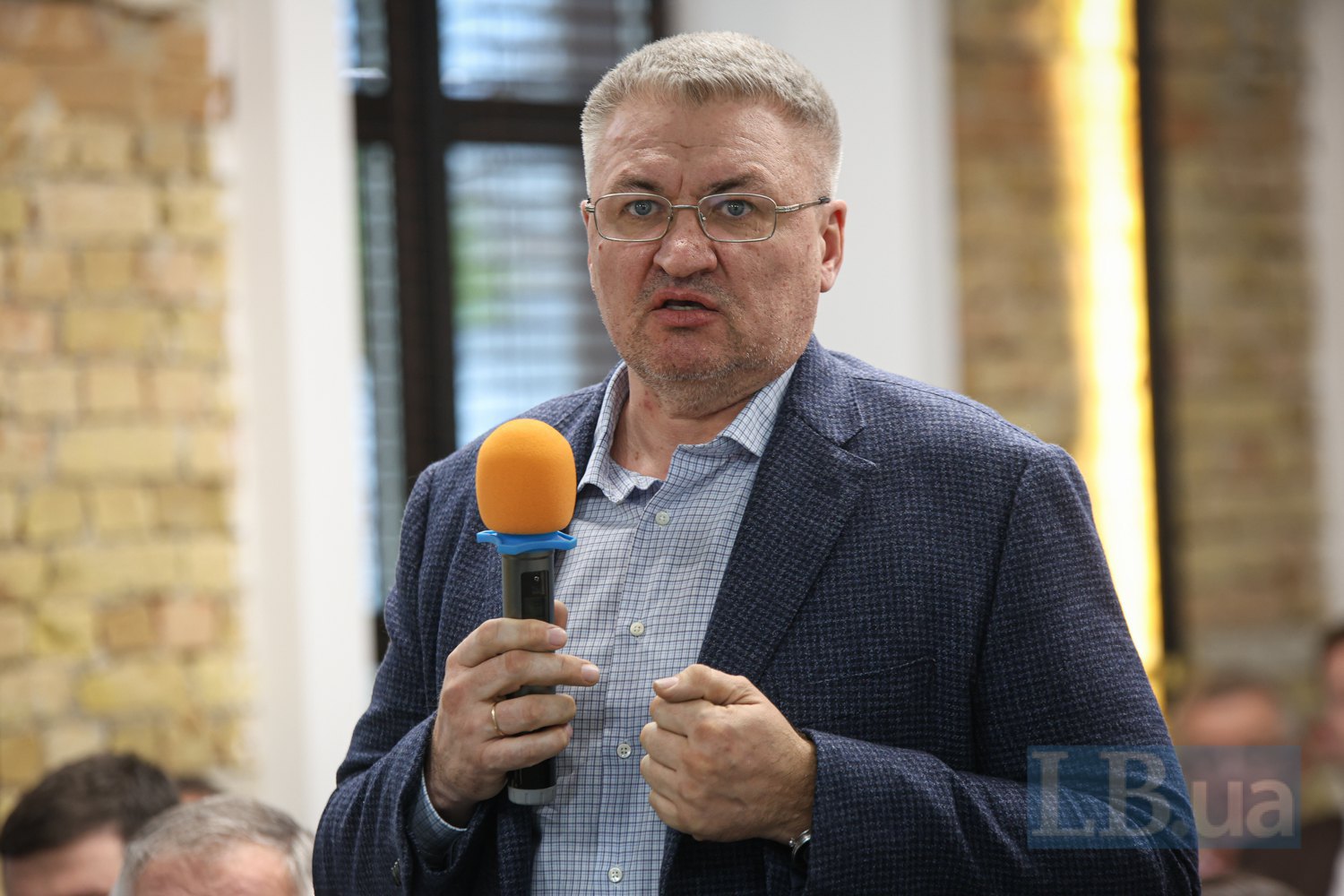
Myroslav Laba, Union of Ukrainian Entrepreneurs: First of all, thank you for how you’ve started your work. It’s a good beginning. You’re clearly a person of action, unafraid of decisions, and moving in the direction many of us have long hoped for.
Regarding local taxes, I’d like to share some experience we’ve had working with communities. We ran a pilot project with PrivatBank. Communities were able to inform their residents – specifically, tax debtors – through the bank. It was efficient: no paper, no administrative burden. Clients were notified via the banking app and could pay their taxes right away.
So, from my experience, many communities now realise they don’t need to administer taxes themselves – it’s too complicated. Instead, they are willing to support the tax service by identifying shadow land plots, unregistered businesses, and unregistered taxpayers, so these individuals can begin contributing personal income tax or local taxes.
A major breakthrough would be establishing real-time data exchange between the tax service and Diia, so citizens can be notified of taxes and make payments directly. Banks can also help here. This kind of quick communication and accessibility is much more effective than transferring administrative responsibilities, which would be burdensome and inefficient. Many communities now understand this.
I understand the frustration. But by law, we must still send tax notices by post. We also duplicate them via the taxpayer’s electronic office.

Vitaliy Romanchukevych, First Vice President of the Association of Ukrainian Banks: Last year, a 50% tax was imposed on banks retroactively. What are your expectations for this year, and what is your position on that situation?
June is approaching – and with it, tax deadlines. Last year, the Cabinet decided banks had to pay in February.
How to tax Telegram? Is it profitable to do business honestly? Taxes from Ukrainians abroad
Dmytro Zolotukhin, Advisor to the Minister of Culture and Strategic Communications of Ukraine: You mentioned in an interview with Ekonomichna Pravda that Google paid UAH 1 billion in taxes in January. You also discussed ongoing processes concerning the OnlyFans platform, and that over 600 inspections are planned.
Sociological research shows that over 70% of Ukrainians get their information via Telegram. According to available data, there are at least two non-resident companies registered in Ukraine that are, or could be, connected to Telegram Group, which is headquartered in the UAE – a tax haven with clear signs of tax evasion.
Has the tax service looked into how this platform is taxed, given that it sells advertising in Ukraine? If not, do you plan to? And how can we help? If there’s no investigation, then what makes Telegram different from Google or OnlyFans?
We’ve already taken steps, are taking steps, and will continue to pursue platforms that operate in Ukraine without paying taxes. I can’t disclose all the details because it’s important that these individuals or organisations don’t gain insight into our approach and try to avoid it.
Sonya Koshkina: So when should we expect a decision on Telegram if you are working on it?

Upon receipt of information from a competent foreign authority.
How did we get the data on OnlyFans? The United Kingdom provided us with data concerning Ukrainian citizens who had received income.
We make inquiries in all directions, across all countries, and use international mechanisms to obtain documents. Why are there so many publications about my meetings with ambassadors? Because I aim to reach agreements with each ambassador of each country so that we can receive information directly and without delay.
For example, we have a successful case in the Czech Republic. A Ukrainian company unlawfully received €11.5 million in VAT there. We acted quickly, resolved the case, and assisted our Czech colleagues — just as they support us. The assistance of the United Kingdom brought additional revenue to the state budget. We now receive information from foreign banks, and currently 50 countries are providing us with data.
The International Department, the Transfer Pricing Department, and the so-called Shadow Department (Department for the Prevention of Financial Transactions Related to Money Laundering – Ed.) all operate, submit requests, and carry out their respective duties. We cannot simply credit an individual or a company based on hearsay or unverified reports of income. We require confirmation and evidence — so that if those individuals take us to court, we have a basis on which to defend our position.
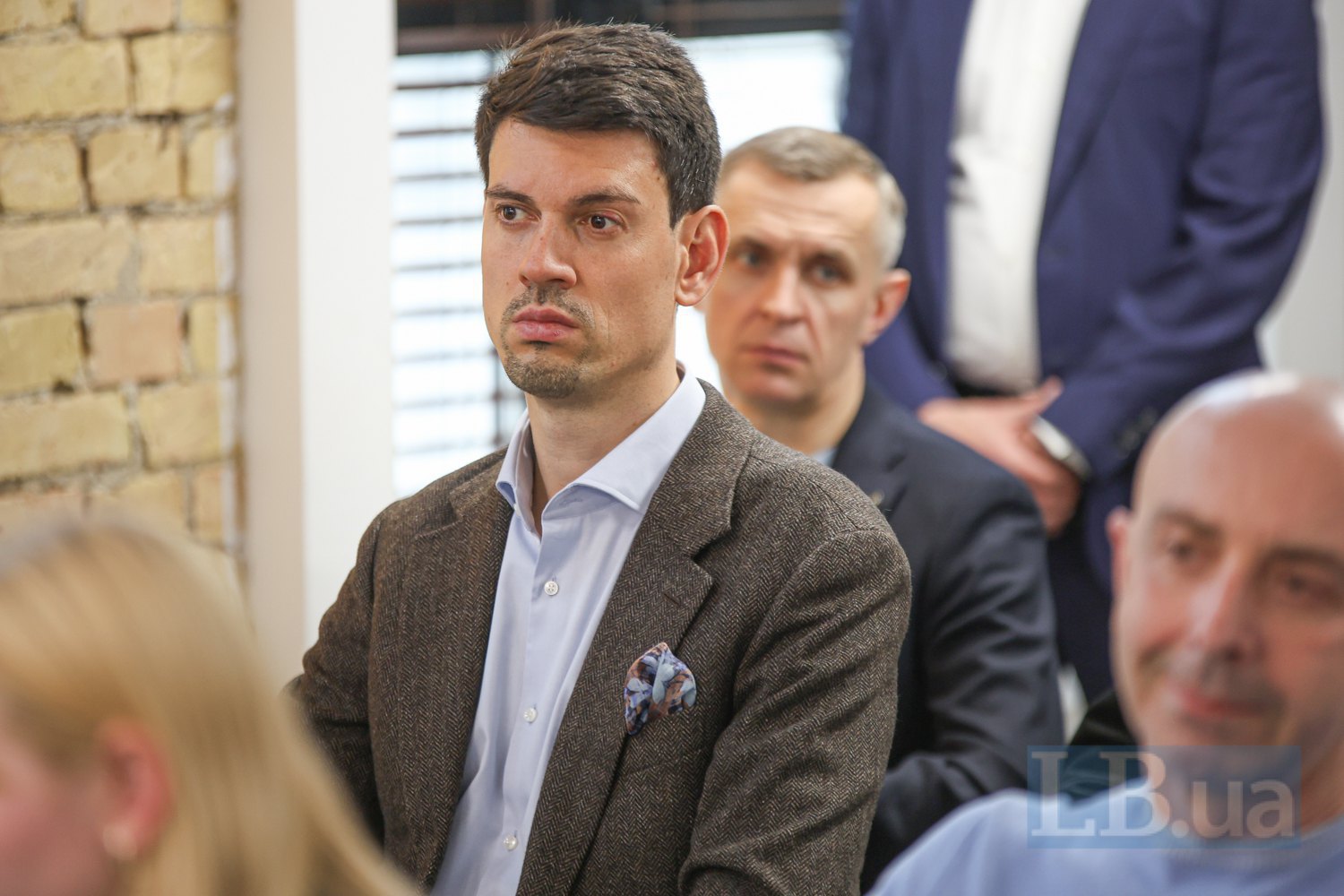
Oleksiy Zhmerenetskyy, MP, Committee on Anti-Corruption Policy: I have a question regarding the vulnerability of the Registrar of payment transactions (RPT) software. For years, various associations have contacted me, providing checks and cases. Your website published news about one shop that was caught collecting receipts offline and then failing to send them when reconnecting to the internet. There is information suggesting that this is a widespread practice. The software is customised for particular chains or stores — they serve customers and issue receipts under the pretext of operating offline, and then neglect to submit those receipts to your server.
The working group that was set up has gone quiet. Do you plan to take any action — to implement a Comprehensive Information Security System (CISS – Ed.) or, for example, to revise the approach to offline mode so that its use is not open to abuse?
We plan to use all safeguards prescribed by law. I am confident that, as a Member of Parliament, you are familiar with the relevant legislation, so I will not list the provisions here to save time.
I would like to take this opportunity to introduce my team. I always meet with the business community together with a team of deputies. Serhiy Mykolayovych Lyseyuk is responsible for this area of inspections. It was he and his team who uncovered these violations, and we continue to monitor and investigate other sales platforms.

Serhiy Lyseyuk, Acting Deputy Head of the State Tax Service: At present, the only effective safeguard is the consumer. Our information campaign is designed to ensure that every buyer demands a fiscal receipt — as a guarantee of consumer rights. To this end, we respond to every citizen’s complaint, and upon receipt of such reports, we carry out control and verification measures. This has proven to be the most effective mechanism to date. As a result, we have observed an increase in the number of registered cash registers and a higher volume of recorded payment transactions. I am confident in the effectiveness of this approach — the results speak for themselves.
Let me add one more point. Do you know why people purchase this equipment? Because it is cheaper — it is smuggled into the country. The question should be directed to customs: where is the loophole through which this equipment enters? Let us not limit our scrutiny to internal safeguards — let us collectively ask customs where the breach is, and whether they can help us seal it.
Sonya Koshkina: We are now recording this agreement on the New Country website. And if you both fail to act, we will follow up later.
Oleksiy Zhmerenetskyy, MP, Anti-Corruption Policy Committee: You referred to the law — and indeed, the Verkhovna Rada should be well aware of the law — but in practice, you are confronted with provisions that are either poorly drafted or ineffective.
I have told you before — the system does not work. Equipment is smuggled into the country, and then such items are sold via unregulated platforms. Consumers say: why should I pay one thousand hryvnyas more for a phone, iPhone, or electric kettle when someone is offering it one thousand hryvnyas cheaper? But the seller did not issue a fiscal receipt — he handed over a piece of paper and called it a cheque. And the tax authorities do not see this.

Hennadiy Chyzhykov, President of the Ukrainian Chamber of Commerce and Industry: I have a somewhat rhetorical question that greatly concerns me — because I cannot answer it when asked by members of the Chamber of Commerce and Industry. Is it profitable to do business honestly in Ukraine or not?
Today, I visited a member of the Chamber — a major company, Imperial Tobacco. They shared some figures: they pay UAH 32 billion in taxes annually and control 15% of the market. Meanwhile, the shadow market — smuggling — also accounts for approximately 15%. That is another UAH 32 billion in taxes that could be contributing to the state budget.
Doing business honestly in Ukraine is profitable — because operating dishonestly can lead to severe consequences. What needs to be done? The pre-trial investigation function should be transferred to the tax service. The tax service should be granted special units to carry out operations at illegal sites, where production lines are manufacturing counterfeit goods — such as the so-called “red Marlboro wine” that is sold in kiosks for 50 hryvnyas. Alternatively, law enforcement should be allowed to carry out these actions effectively.
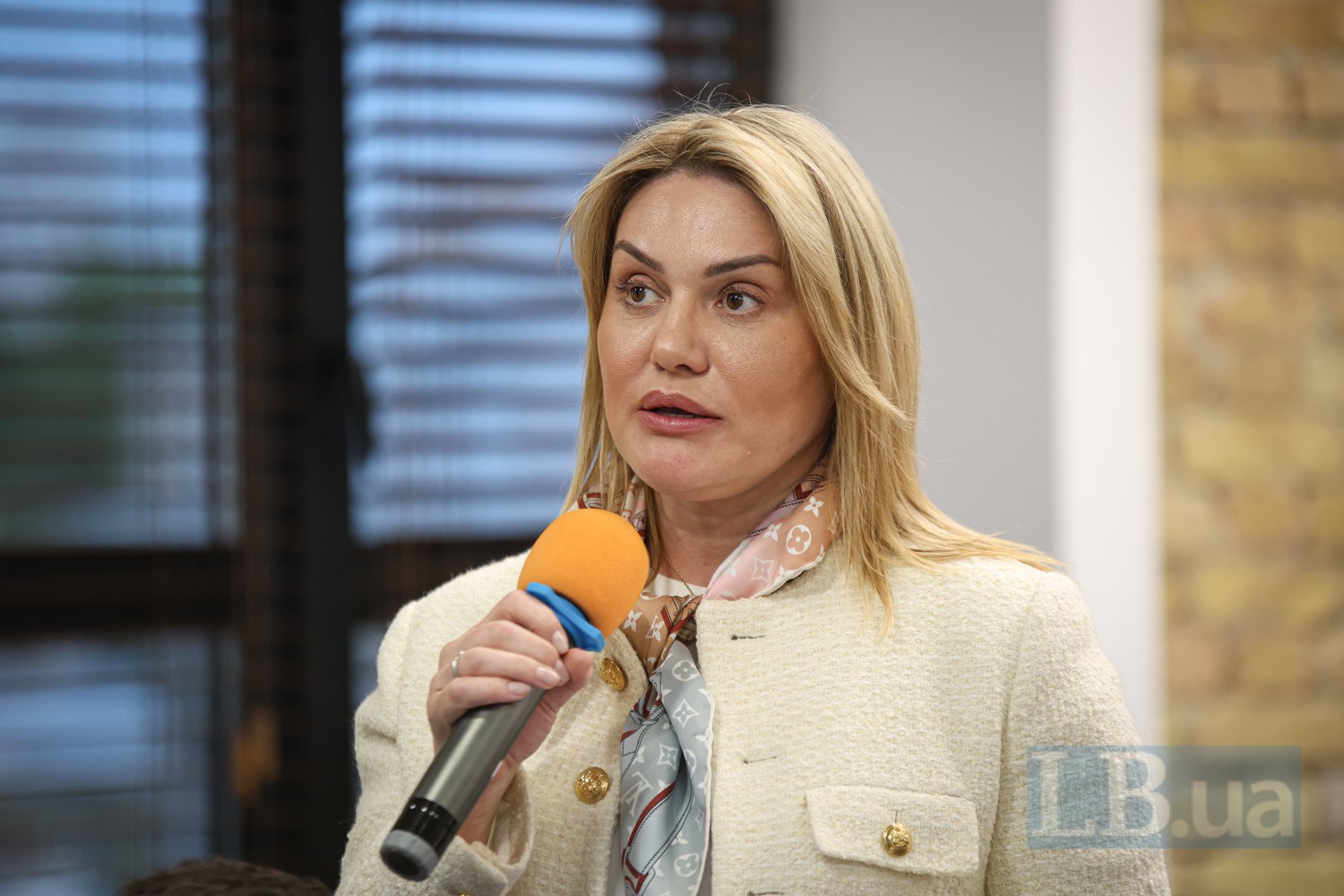
Tetyana Ostrikova, former MP, member of the Supervisory Board of Altbank: An automated system for the exchange of information with foreign tax authorities has been operational since the autumn. We, as representatives of the business community, have prepared and submitted Controlled Foreign Company (CFC) reports — which is not a cheap process today. Therefore, we hope that the consultants’ services we have paid for have been worthwhile.
Could you please provide some information on the initial outcomes of this international data exchange? What are the results of the analysis of reports on controlled foreign companies, and how effective are these mechanisms in verifying the income declarations of Ukrainians abroad? Perhaps you already have suggestions for the Ministry of Finance or for the relevant parliamentary committee — what changes are needed?
And the second question is from me personally. The Verkhovna Rada is currently considering draft legislation on key performance indicators (KPIs) for the tax authority. What would you personally consider a success in your current position — both for yourself and your team?
I would like to introduce you to Yuliya Katsan, Head of the Transfer Pricing Department, who will assist me in answering the first question. My deputy, Lesya Karnaukh, may also wish to add something. As for the second question, I will respond to that personally.

Yuliya Katsan, Acting Director of the Transfer Pricing Department: As of now, the declaration campaign for 2024 on CFCs is underway. So let's talk about the figures for 2022-2023 only. We received more than two billion to the budget based on the results of the reporting. About 16 thousand individuals and legal entities controlling CFCs submitted reports to us.
The money was well spent, as we are currently analysing all this data, summarising it, and sending requests to foreign competent authorities. And since we do not have any penalties for late submission of CFC reports, these companies that have submitted them receive assistance from us in resubmitting them, clarifying them if they have indicated something incorrectly. The tax office communicates with taxpayers and explains how to submit and resubmit correctly without any penalties.
The same taxpayers whose information we receive from other authorised bodies, such as banks and financial institutions (and there are more than 17,000 such reports on controllers), who are not currently filing reports but will be filing them when the liability in the form of penalties returns, will no longer have the opportunity to clarify, consult, or receive any feedback from the tax authorities on their submitted report. And the penalties for late submission of the report on controlled foreign companies are quite high.
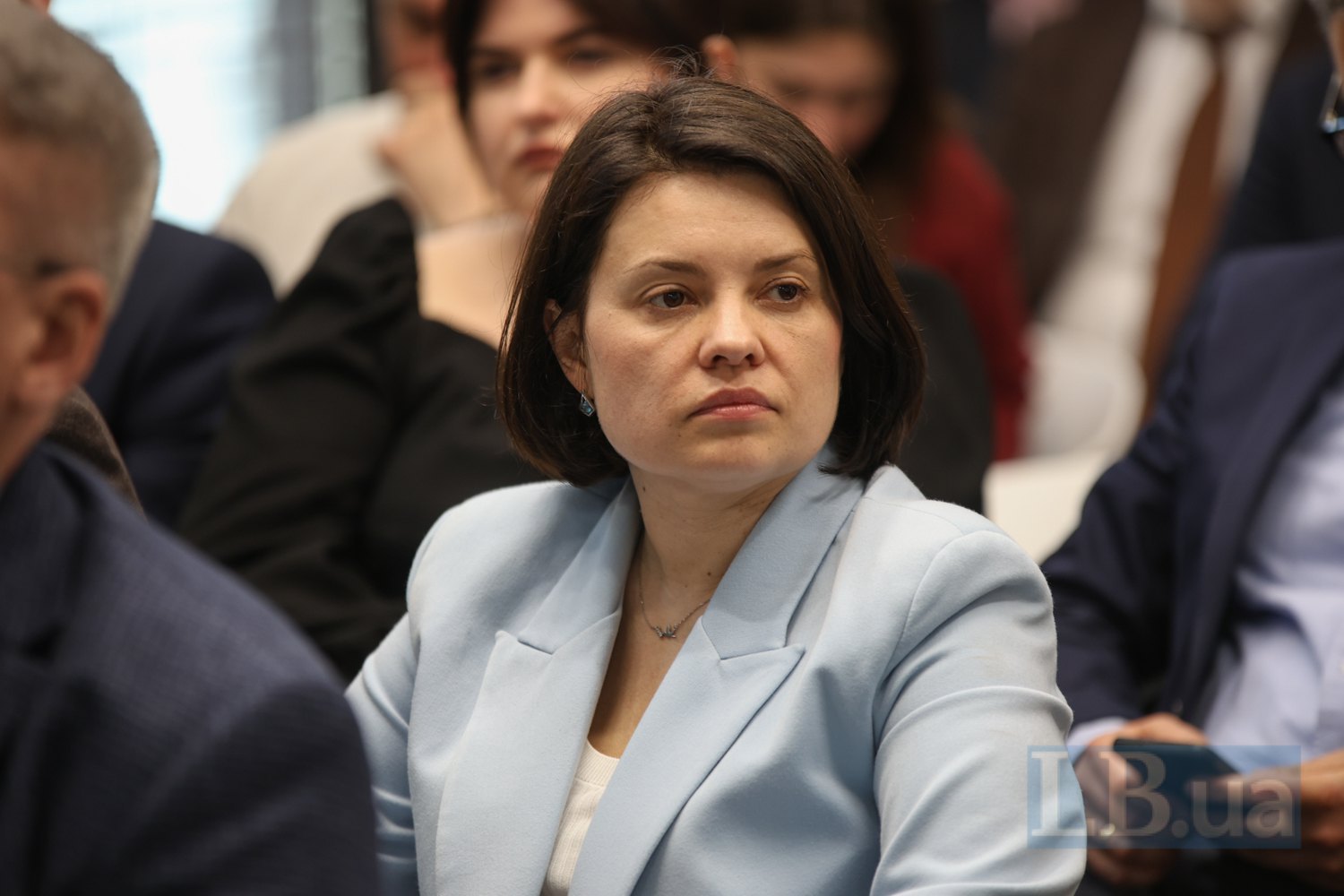
Lesya Karnaukh, Deputy Head of the State Tax Service of Ukraine: In order to ensure that the figures we receive from financial institutions and in the reports coincide, we are conducting a large-scale communication campaign and encourage everyone to file. This is the first thing.
Secondly, as for receiving information on cooperation from foreign competent authorities. As our chairman has already mentioned, more than 50 countries cooperate with us quite actively, but the level of processing and the speed of processing, unfortunately, remains very different and different. And this is one of the priorities for 2025, including in the framework of cooperation with the OECD (Organisation for Economic Cooperation and Development – Ed.), as part of the BEPS initiative (a set of international tax rules aimed at strengthening the tax base – Ed.), as well as the work of Tax Without Borders to develop mechanisms for fast and effective cooperation, because we see a great future in this.
Sonya Koshkina: According to the Ministry of Unity, there are 60 million Ukrainians in the world, 31 of whom are currently in Ukraine. That is almost half. Based on this, how do you think the tax system should be set up: how much do you think should come into the country from Ukrainians abroad, and how much is already coming in?
If you receive income, pay it. If they are residents of Ukraine. If they have lost their tax residency in Ukraine, then I'm sorry.
Sonya Koshkina: How much tax revenue do we currently receive from Ukrainians abroad?
The head of the department for taxation of individuals will tell you.
Sonya Koshkina: Are we going to meet all your deputies today?
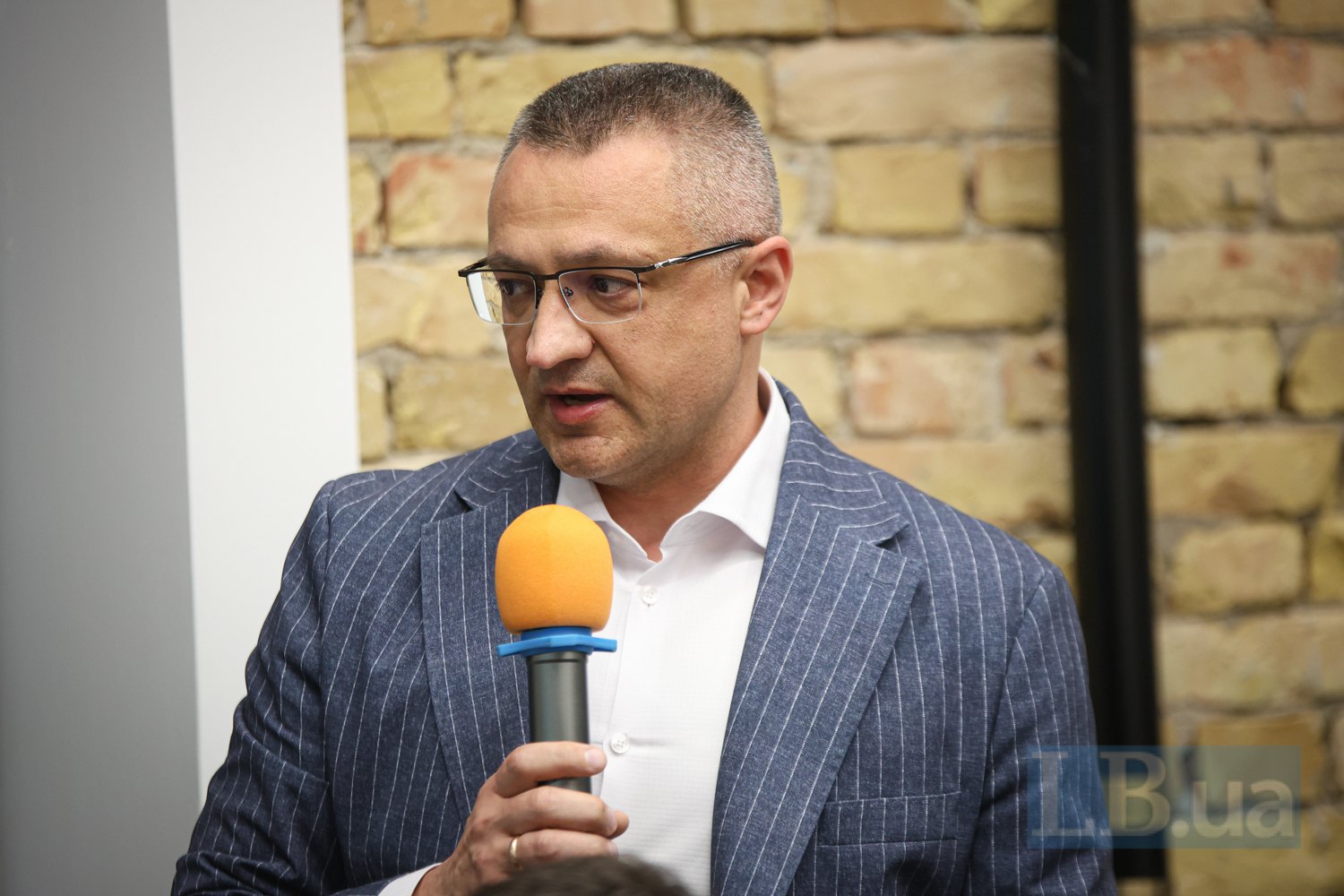
Volodymyr Kyzyma, acting director of the Department of Taxation of Individuals: A few figures. As of today, 4.5 thousand citizens who are outside the state have already filed a declaration and declared almost 5 billion. This includes UAH 680 million in personal income tax and almost UAH 100 million in military tax.
This is more than in the same period last year. We have already seen an increase of 1.7 billion in revenues since last year. However, the declaration campaign is not over yet, so it is too early to sum up the results.
Getting back to KPIs and measures... The law has not yet been adopted, so I believe that the measure of the tax authority's performance is the fulfilment of the tax collection plan. And overfulfilment. And an increase in business confidence. I am not just saying this to business: I understand that I am your enemy. For some businesses, the tax authorities are the bad guys who want to take their money. But we are just doing our job, filling the state budget and enforcing the law.
My priority is to find this balance of communication so that business understands our work and we understand business; and not to lose the stability that we are gaining and increasing every day until the war is over, peace comes, we win and, possibly, the tax system changes.
Anything can happen. Perhaps a new head of the tax service will come...
Sonya Koshkina: And you will move to the prosecutor's office, right?
No, I won't. I will become the head of the tax committee (laughter in the audience - Ed.).
